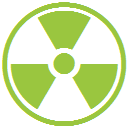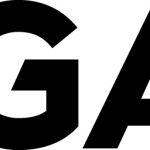Locus and Overhoff to Offer Real Time Tritium Monitoring and Compliance Software at Nuclear Facilities
SAN FRANCISCO, Calif., March 15, 2010 — Locus Technologies (Locus), the industry leader in web-based environmental compliance and information management software, and Overhoff Technology Corporation, the world’s leader in the design and manufacture of Tritium monitors and radiation monitoring systems, have partnered to offer a complete Tritium monitoring solution for the nuclear industry using Overhoff’s Tritium instrumentation and Locus’ award winning Cloud Computing software.
As the new Administration advocates expansion of America’s nuclear power industry, pushing for billions of dollars in federal incentives and announcing plans to build the first nuclear plant in decades, new issues have arisen regarding leaking and possibly dangerous levels of Tritium, a radioactive byproduct of the nuclear process. The U.S. Nuclear Regulatory Commission (NRC), which oversees the inspection and licensing of nuclear facilities, says roughly 30 of the nation’s 104 reactor units have experienced Tritium leaks. According to the NRC, none of the leaks have impacted public health or safety but, the unmonitored and unexpected releases have raised concerns within the industry and among watchdog groups nationwide.
Similar concerns regarding leaks at several plants in the mid 2000’s prompted the members of the Nuclear Energy Institute (NEI) to put forth a Ground Water Protection Initiative (NEI-07-07) in 2007. This Initiative identifies actions that utilities can take to improve their management and response to instances where the inadvertent release of radioactive substances may result in low but detectible levels of plant-related materials in subsurface soils and water, even when these are well below the NRC limits pertaining to the protection of public health and safety. One of the key actions that adoptees of the Initiative are expected to undertake is the establishment of an on-site groundwater monitoring program involving on site monitoring or regular sampling and analyses to ensure the timely detection of inadvertent radiological releases. The Tritium groundwater challenge was addressed in 2009 when Locus introduced the nuclear module for its flagship product EIM that is already deployed at several nuclear power plants.
According to the NRC, additional requirements pertaining to the monitoring of air releases of Tritium and Carbon-14 are likely to be promulgated in the future. To meet these requirements, new monitoring instruments and data management tools will have to be installed since many facilities are still using over 30-year old stack monitors and few, if any currently have H-3 or C-14 stack monitors in place.
For those nuclear facilities wanting to fulfill their responsibility under existing (e.g., 10CFR-51 and 10CFR-52) as well as likely forthcoming regulations, the Locus/TA Overhoff solution provides a complete system for Tritium monitoring. TA-Overhoff has been designing and manufacturing nuclear air and stack monitors since 1946. The company recently announced the new, state-of-the-art CAM-TC and CAM-TCI series monitors. The model CAM-TC is a full-service, state-of the-art, stack monitor that reads, analyzes and records Beta-Gamma Particulates, Iodine, Noble Gases, C-14, Tritium and optionally, Alpha Particulates. The data captured by the CAM-TC monitors is immediately passed to Locus’ EIM where it is managed and integrated with groundwater and other monitoring data. Within EIM, graphs can be plotted, reports generated, maps can be produced and statistical analyses performed.
“Nearly all of the activities associated with water and air protection at nuclear power plants, including the assessment of site characteristics, the ongoing monitoring of site conditions, and decommissioning of old plants or permitting of new plants, involve the collection and/or analysis of data. The tools and systems used to manage and store this information must satisfy strict NRC security and QA/QC requirements such as NQA-1 or ISO 9001:2008 to ensure that only the appropriate people can access the data, and that the quality of the data adheres to the highest NRC standards. It is also critical that these applications allow engineers and scientists to do their work in a cost-effective way, allowing them to focus less of their time on finding the data they need and formatting various outputs, and more on the evaluation and analysis of these data. In addition data must be transparent and verifiable to all stakeholders. All of these requirements are instantly met using Locus/Overhoff monitoring and data management solution. We are very pleased that Overhoff Technology has decided to join forces with Locus. The company’s outstanding reputation for having monitors that excel in performance will enhance Locus’ offering in the important nuclear monitoring market,” said Dr. Neno Duplan, President and CEO of Locus.
“We are very pleased to join with Locus to bring an integrated and elegant solution to address the nuclear industry’s Tritium monitoring needs. Our experience in producing hundreds of different types of monitors for different users, coupled with Locus’ market leader position in Cloud Computing-based environmental data management, will benefit our joint clients,” said Dr. Robert I. Goldstein, President and CEO of Overhoff.
ABOUT OVERHOFF
Founded in 1972, Overhoff Technology Corporation specializes in the design and manufacture of Tritium monitors. With the world’s largest selection of Tritium monitors, Overhoff can offer monitors ranging from simple hand held units to complex integrated digital radiation monitoring systems.
For more information, visit www.overhoff.com or email sales@overhoff.com.


